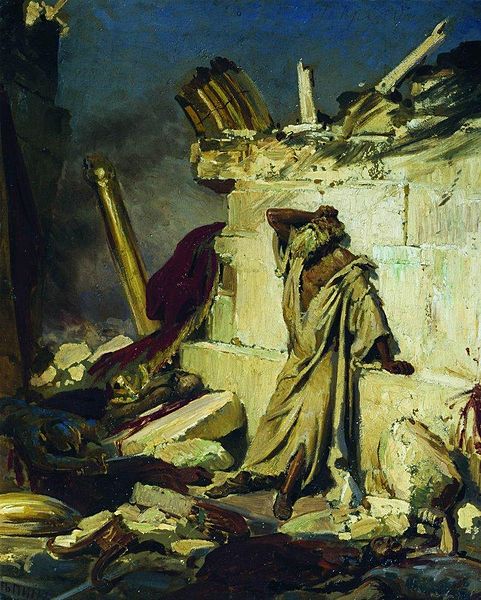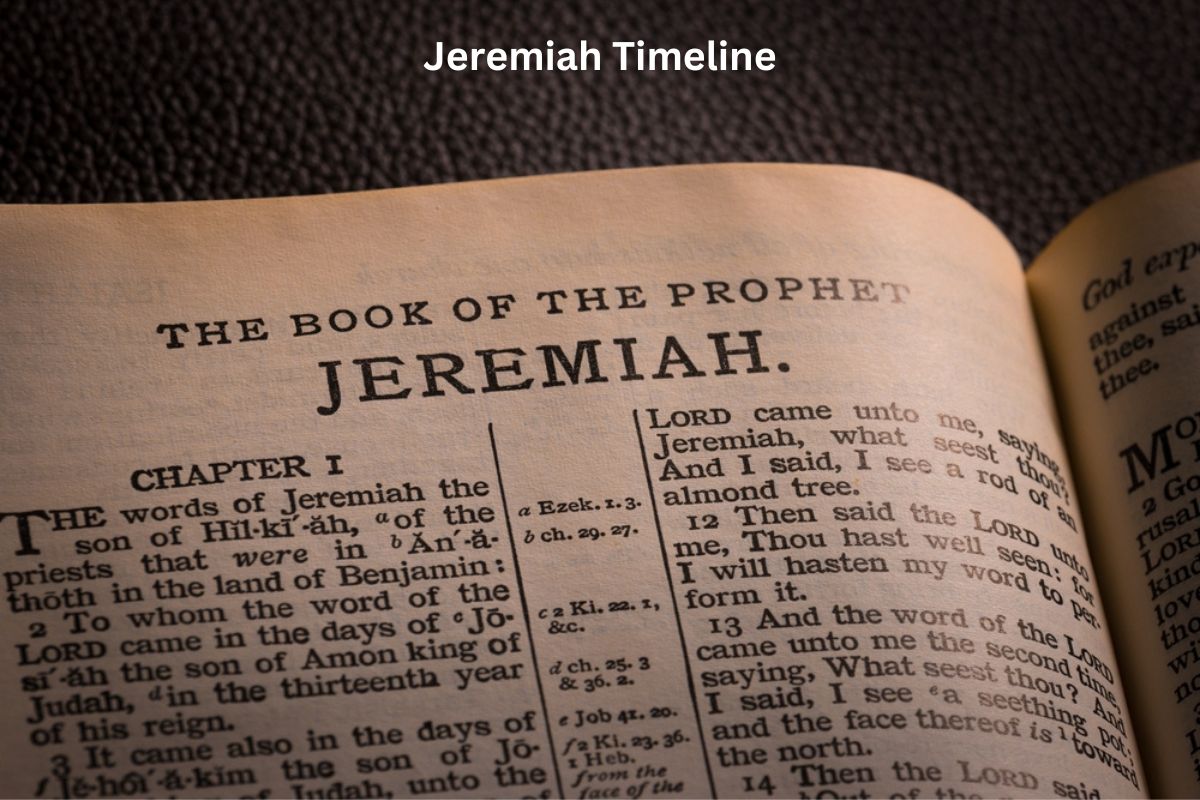Jeremiah, often referred to as “The Weeping Prophet,” was a significant figure in ancient Israel during the late 7th and early 6th centuries BCE.
Born around 650 BCE in the town of Anathoth near Jerusalem, Jeremiah was called by God at a young age to be a prophet to the nations.
His prophetic career spanned a tumultuous period in the history of Judah, including the reign of the righteous King Josiah, the subsequent downfall of Jerusalem, and the exile of the Jewish people to Babylon.
Jeremiah’s prophetic messages were characterized by warnings of impending judgment due to the people’s disobedience, calls for repentance, and declarations of hope for a future restoration. He faced persecution, imprisonment, and opposition from the very people he sought to guide, yet he remained steadfast in his mission.
Jeremiah’s prophecies and writings, preserved in the Book of Jeremiah in the Hebrew Bible (Old Testament), continue to inspire and instruct readers with their timeless messages of faith, repentance, and God’s enduring love.
| Event | Approximate Date |
|---|---|
| Born | c. 650 BCE |
| Call to Prophethood | c. 627 BCE |
| Reign of King Josiah | (640-609 BCE) |
| King Josiah’s Death | (609 BCE) |
| Babylonian Invasion of Judah | (605-586 BCE) |
| Imprisonment and Persecution | |
| Fall of Jerusalem | (586 BCE) |
| Post-Exilic Ministry | |
| Death |
Timeline of Jeremiah in the Bible
Born: c. 650 BCE
Jeremiah was born in the small town of Anathoth, which was located near Jerusalem. He was born into a priestly family, which played a role in his prophetic calling.

Call to Prophethood: c. 627 BCE
Jeremiah received his divine calling to become a prophet at a relatively young age, likely in his late teens or early twenties. This call was a significant moment in his life, as he was appointed by God to be a prophet to the nations.
Also Read: Facts About Jeremiah in the Bible
He was tasked with delivering God’s messages and warnings to the people of Judah and the surrounding nations.
Reign of King Josiah (640-609 BCE)
Jeremiah’s prophetic ministry began during the reign of King Josiah of Judah. King Josiah was known for his religious reforms, which included the restoration of the Temple in Jerusalem and the rediscovery of the Book of the Law (likely an early version of the Torah).
Also Read: Ezekiel Facts
Jeremiah supported these reforms and encouraged the people to return to the worship of God and obedience to His commandments. This period was characterized by relative stability and religious revival in Judah, although it would be followed by more challenging times.
King Josiah’s Death (609 BCE):
King Josiah’s death in 609 BCE marked a turning point in Jeremiah’s ministry. Josiah had been a pious and reform-minded king who had led Judah in turning back to the worship of God.
However, after his death, the political situation in Judah became unstable. His successors did not follow his religious reforms, and idolatry and disobedience to God’s commandments began to resurface among the people.

Babylonian Invasion of Judah (605-586 BCE):
Jeremiah’s prophetic career coincided with the tumultuous period leading up to the Babylonian invasion and the subsequent destruction of Jerusalem.
He prophesied about the impending doom of Judah due to its idolatry, disobedience, and failure to repent. The Babylonians, under King Nebuchadnezzar, besieged Jerusalem multiple times during this period.
Jeremiah urged the people to surrender to the Babylonians to avoid further suffering, but his warnings were met with opposition and accusations of treason. Despite these challenges, he continued to faithfully proclaim God’s message.
Imprisonment and Persecution:
Jeremiah faced significant opposition and persecution for his unpopular messages. He was often targeted by the political and religious leaders of Judah, who viewed his prophecies as a threat to their authority and who accused him of being a false prophet. As a result, Jeremiah was imprisoned at various times during his ministry.
One of the well-known instances of his imprisonment occurred when he was thrown into a cistern, or pit, for his prophesying. He was later rescued by a court official, Ebed-Melech, who sought to protect him.
Fall of Jerusalem (586 BCE):
In 586 BCE, Jeremiah’s prophetic warnings about the Babylonian invasion and the destruction of Jerusalem were tragically realized. The Babylonian forces, led by King Nebuchadnezzar, breached the walls of Jerusalem, resulting in the city’s downfall.
The consequences were devastating:
- the destruction of the city
- the burning of the Temple
- the exile of many Judeans to Babylon
Jeremiah’s prophetic role during this time was to offer comfort and guidance to the people who had survived the siege and destruction. He assured them that this period of exile was a consequence of their disobedience but also conveyed God’s promise of eventual restoration and return to the land.

Post-Exilic Ministry:
After the fall of Jerusalem, Jeremiah continued to prophesy to the remnant of Jews who were left in Judah and to those who had been taken into exile in Babylon. His messages shifted to focus on the hope of restoration and the eventual return of the exiles to their homeland.
Jeremiah played a role in encouraging the exiles to maintain their faith and identity in a foreign land. He conveyed God’s promise of a new covenant that would be written on their hearts and offered hope for a future where they would once again worship God in Jerusalem.
Death:
The exact date of Jeremiah’s death is not recorded in the Bible, but tradition suggests that he died in Egypt.
After the fall of Jerusalem, a group of Jews fled to Egypt against Jeremiah’s counsel, and he likely accompanied them. It’s believed that he continued to minister to the Jewish community in Egypt until his death.
Jeremiah’s legacy endures through his prophecies and writings, which are preserved in the Book of Jeremiah in the Hebrew Bible (Old Testament). His messages of obedience, repentance, and hope continue to resonate with readers today.
